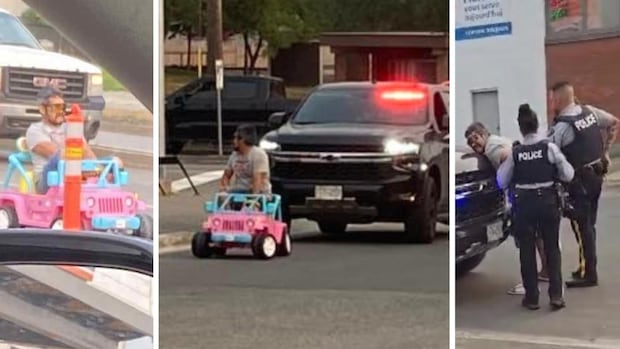2SLGBTQ+ group one of two excluded from Vancouver Chinatown’s Lunar New Year parade

Two community groups, including one representing 2SLGBTQ+ people of Asian descent, say they’ve been excluded from Vancouver’s Lunar New Year parade in Chinatown this weekend.
Chinatown Together and 2SLGBTQ+ group Lunar New Year For All say their applications to march in the Spring Festival Parade on Sunday were rejected by the committee that runs the event.
The parade marks the year of the dragon, which starts on Saturday.
Community activist Melody Ma, organizer of Chinatown Together, posted a letter on social media that she says came from the parade’s organizers, telling her that approval of the group’s participation had been rescinded because “political activism finds no place within the spirit of the event.”
The letter dated Feb. 3 says the parade is “dedicated to a sense of unity” and is intentionally distanced from religious or political affiliations.
But Pearl Wong, co-organizer of Lunar New Year For All, says the group doesn’t consider itself political, and no reason for its exclusion was given in the letter it received.
“Our thought process was, hey, it would be really cool if we could form a group that is dedicated for queer and trans folks of Asian descent,” Wong said. “We don’t really understand why it has to be this hard, because I don’t think it’s very hard to be inclusive and welcoming.”
Wong, who is from New York, said Manhattan’s Chinatown parade had incorporated 2SLGBTQ+ members since 2010.
‘Community, collaboration and tolerance’
The Chinatown Spring Festival’s organizing committee issued a response late Thursday, saying it is “committed to upholding the tradition of promoting community, collaboration and tolerance across cultures.”
“We are also committed to ensuring that the parade is a safe and inclusive event for all participants and spectators,” it said in a statement.
“The committee will make the decision to accept or reject parade team applications based on these criteria.”
Ma is a vocal critic of gentrification in Chinatown, opposing projects such as a residential tower at 105 Keefer St., which was approved by Vancouver’s permit board last June after years of dispute.
But she said none of the group’s banners on Sunday would have mentioned gentrification or 105 Keefer St., in accordance with parade rules.
“We decided to participate in the Lunar New Year parade despite the fact the organizers were pro-Chinatown gentrification, because we wanted to put that all aside,” Ma said. “For this, the largest celebration of Chinatown, we’re going to put all these political differences aside and participate in this together.”
“Unfortunately, what’s ironic is that by rejecting and citing political activism, whatever that means to them in this case, they are inherently politicizing the event and the decision,” she added.
The Lunar New Year parade in Vancouver has changed a lot since 1958. For a look at how it’s evolved over time, and how it’s impacted the community, CBC’s Yasmine Ghania spoke with Melissa Lee, CEO of the Chinese Canadian Museum.
The parade is organized by a consortium of six organizations — the Chinese Benevolent Association of Vancouver, the Chinese Cultural Centre of Greater Vancouver, the Vancouver Chinatown Merchants Association, the Chinese Freemasons Vancouver Branch, the Shon Yee Benevolent Association of Canada and social service agency SUCCESS.
SUCCESS said in a written response that it isn’t the lead organizer of the parade and isn’t involved with operational decisions.
The letter posted by Ma on social media says the festival’s organizing committee had “steadfastly adhered” to its principles for decades, “ensuring the event remains a beacon of cultural heritage and community cohesion.”
“While your passion for advocacy has been recognized, it is essential to underscore that political activism finds no place within the spirit of the event,” it says.

Jordan Eng, president of the Vancouver Chinatown Business Improvement Association, said the case highlights the complexity of Chinatowns and their social and economic fault lines.
“Chinatown is like a city in itself,” with strong opposing views on issues such as gentrification, Eng said.
“On 105 Keefer, even within those legacy organizations, that was a really hard decision,” Eng said, noting many groups changed positions over time to support the project.
“Our views don’t necessarily align with the legacy organizations, and the last go-around for 105 [Keefer], most of those organizations did not support it as well.”
Eng’s groups supported the project.
He said this year’s parade would play a crucial role in the revitalization of the neighbourhood after the pandemic.
“This is really a time for us to showcase Chinatown in a very positive light, in a unified light,” he said. “We need good news stories. We don’t need people trying to bring us down.”




